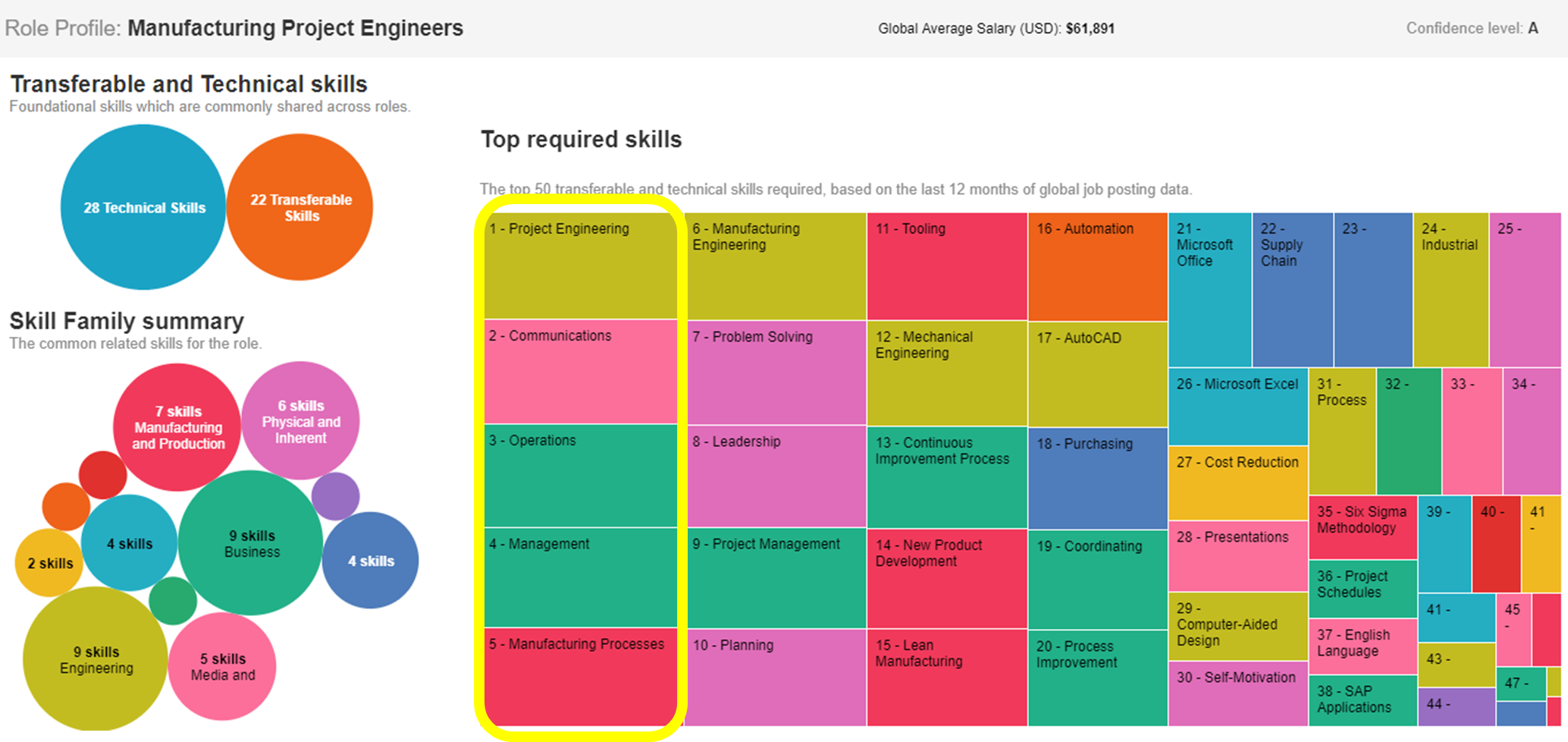Widening your talent pool to reduce skills-gaps: UK Food and Drink Manufacturing
TL;DR
This article presents a new way for UK Food and Drink Manufacturers to address critical skills shortages. This is achieved using data on ‘adjacent’ roles and skills - opening up new pools of talent, increasing the volume of candidates and often reducing the price-point. This applies both to external recruitment and internal skills development. Click here for more information
Using our latest labour market data, you can increase the size of talent pool you are searching and reduce skills gaps, by delving deeper into the current and future skills of a role.
It has been widely reported, with the effects rippling throughout the industry, that the skills shortages faced by Food and Drink Manufacturers are alarmingly disadvantaging the sector. The Food and Drink Federation reports in its ‘2023 Q2 state of industry report’ that vacancies remain higher than the rest of Manufacturing and the UK, at 4.8%.
For several years, unfilled vacancies have been highest in Engineering, Packaging, Operations, and Food Technologists and Scientists. Let’s look at one of the most in demand skills for UK food and drink manufacturing, and the insights we can access using Simply the Rightskilling platform.
Engineers in manufacturing come in all shapes and sizes. Food and Drink need engineers with specialisms in maintenance, process, automation, projects and quality assurance. We will spotlight a Project Engineer.
Project Engineers – second most in demand engineering role
Simply data shows that in the year to June 2023, the role of a Project Engineer was the second most sought-after engineering role for UK Food and Drink manufacturing.
Current and emerging skills of a Project Engineer
When looking at the role profile of a project engineer, we can see it is nearly 60% technical skills, consisting of skills such as manufacturing engineering, manufacturing processes and mechanical engineering.
It is notable that of the top five required skills, three are transferable skills: Communications, Operations and Management.
There are emerging and growing skills for a Project Engineer. Our extensive labour market data shows skill requirements for a project engineer are changing, with several rapidly growing ‘emerging’ skills including Team Leadership, Adaptability and Capital Expenditure being sought after. Whilst Process Engineering is the top ‘growing’ technical skill.
What other roles have similar skills to a Project Engineer and could be upskilled? Using Simply Rightskilling platform, we can see which roles have the closest skill profile to a project engineer. There are several ‘adjacent’ roles that could move sideways (lateral moves in), five of the top six being highly experienced such as leaders/supervisors in their area, as wells as some more common feeder roles.
Expand your talent pool!
Whilst recruiting, you can expand the talent pool search by looking for those with the emerging and growing skills, or those who are in adjacent roles. This would be a great opportunity to identify those within your business who could be upskilled, or during recruitment identify new talent who are looking to develop their career in this field of engineering.
At Simply, we believe the power is in the data. We bring your People data together with the latest Labour Market data to provide powerful insights that inform your skills strategy.
Are you seeing a need for your project engineers to have these emerging and growing skills?
What other ways have you widened your talent pool?
What other industries / roles are you interested in?
By booking your demo today you can grow your ability to make effective decisions and implement the right actions to build or buy the right skills - and remove your blind spot.
Source: data and images sourced using Simply Rightskilling platform using Lightcast data 2023.




